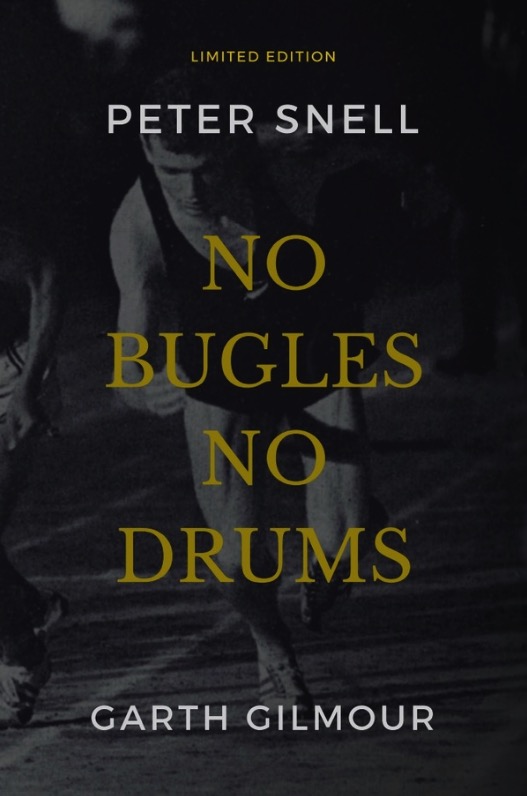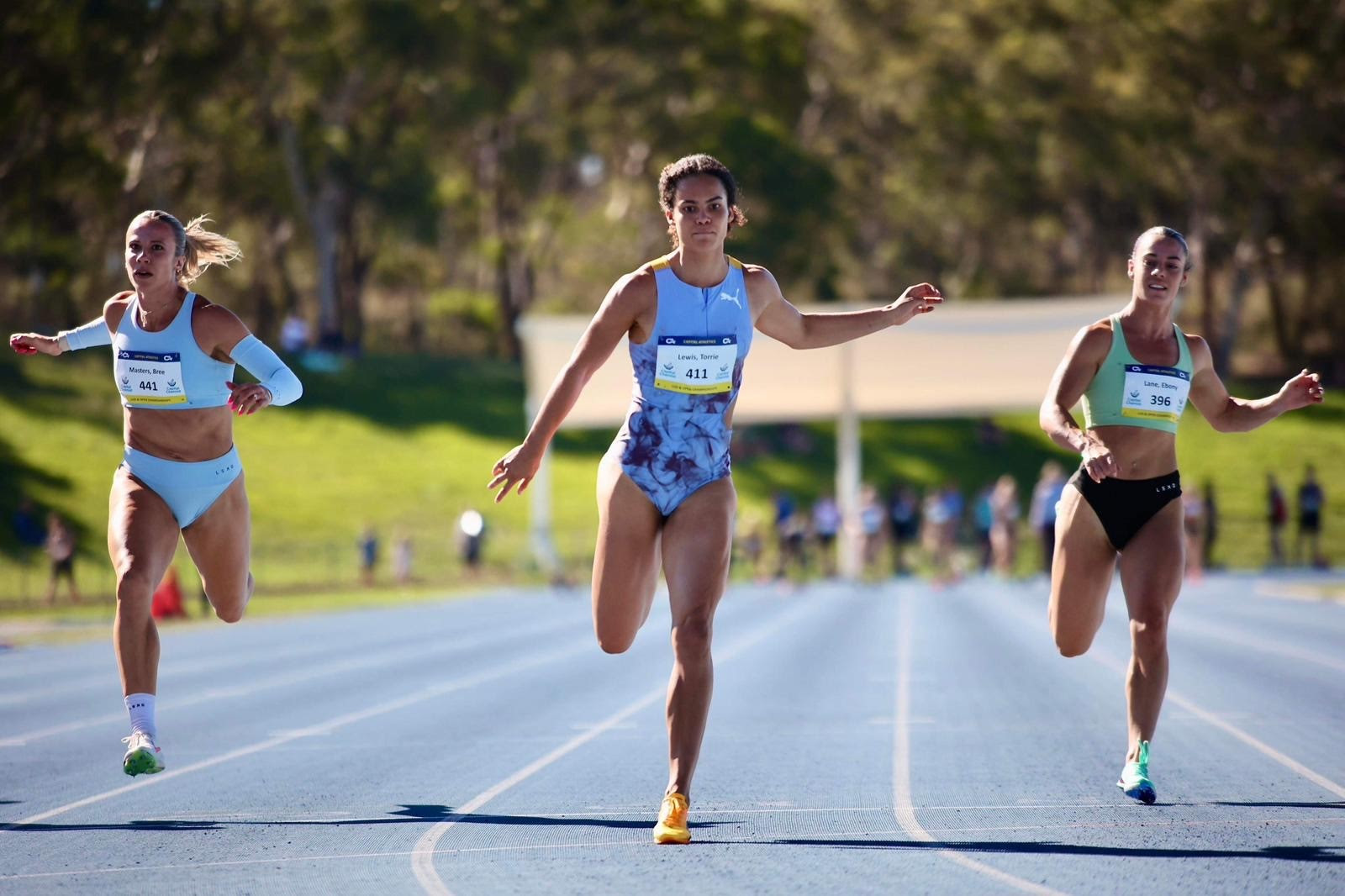It’s early in an Olympic year. An unknown young man breaks through at 800, running 1:45.77. A scarcely better-known young woman breaks the national record in the 100 metres, speeding down the straightaway in 11.10 seconds.
Canberra 2024? Peyton Craig and Torrie Lewis at the ACT championships? Yes, of course, but it could also have been Canberra January 2000; Kris McCarthy and Lauren Hewitt kicking off Sydney’s Olympic Games year.

There were certainly uncanny echoes of things 24 years earlier. Back then, at the Canberra Track Classic, Kris McCarthy beat most of the nation’s best at 800. He ran 1:45.77, precisely the same time as Craig did almost 24 years later to the day.
Lauren Hewitt ran 11.18 to win the 100 metres and 22.52 to win the 200. The 100 was wind-assisted; the 200 was her lifetime best. Neither was a national record. It was the quality of the opposition that made the performances memorable. Hewitt defeated national record-holder Melinda Gainsford-Taylor in the 100, then beat her again in the 200 along with one Catherine Freeman, who finished third.

Photo by: Monash University
Want some more parallels? Craig turns 19 in March and has a background as an age champion in swimming and triathlon as well as athletics. He was running just his third 800 race in Canberra and also competed in last year’s world U20 championships in the 1500 (he was run out in the heats). He won the de Castella U20 3000 at the Zatopek 10,000 meeting last December.
Kris McCarthy was 20 at the time of his breakthrough. He had Australian Rules football in his background along with Little Athletics (one of his under-age contemporaries in the middle distances was Craig Mottram). Before his emergence he had been a football boundary umpire, which was where he did most of his training. He had improved from 1:55 to 1:45 in a little over 18 months. His previous best for 800 was 1:47.59 at the 1999 Zatopek 10,000 meeting.

Hewitt was just a couple of months past her twenty-first birthday back in January 2000, but she was a more complete athlete at that stage than Lewis is now. She had already made a senior world championships final at 200, finishing seventh in Seville in 1999. But she didn’t beat Gainsford-Taylor and Freeman that often, and certainly not both, across both sprints, on the same day.
If the head-to-head records on the World Athletics statistics page are correct (and if I can count accurately), Hewitt beat Gainsford-Taylor just twice in 20 meetings over 100 and a slightly better three times in 21 races at 200. She had a 4-4 record against Freeman at 200, though the last four of those wins were in 2002-03 as Freeman drifted towards retirement.
Even so, Hewitt in January 2000 looked to have the world ahead of her just as Torrie Lewis does now. It didn’t quite work out that way. Niggling injuries limited Hewitt but her achievements are still substantial. As well as her individual final finish in the 1999 world championships she was a member of the Australian 4×100 relay which finished seventh in the Atlanta 1996 Olympics and won a 4×400 gold medal with Freeman, Jana Rawlinson and Tamsyn Manou at the Manchester 2002 Commonwealth Games.

Photo by: Athletics Australia
Kris McCarthy’s Sydney Olympic chances were compromised by an untimely hamstring injury and he was run out in the heats. He won a bronze medal in the Manchester Commonwealth Games but was again hit by injury in 2004 and had to pull out of the Athens Olympic team.
Still, January 2000, and suddenly anything seemed possible for McCarthy and Hewitt. Now, 24 years later in January of another Olympic Games year, the same possibilities lie ahead of Peyton Craig and Torrie Lewis. It will be fascinating to watch how each athlete handles them.
Post-script: Several others got their Olympic year off to a solid start in Canberra in January 2000. Patrick Johnson beat Matt Shirvington in the 100 metres with ‘the Shirv’ going on to miss the final by one place. The same Olympic fate lay in wait for Tamsyn Lewis, who ran her PB 800 in 1:59.21. Pat Dwyer ran 45.19 in the 400 and Peter Burge beat Jai Taurima in the long jump.
“Jumping Jai’ went on to a silver medal in Sydney. Burge finished sixth.





